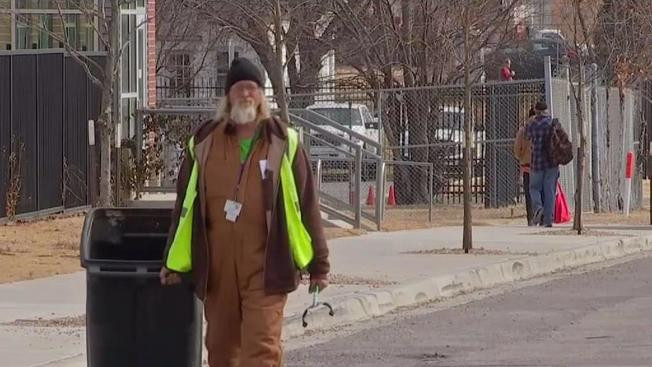- Better Society -
- 3mins -
- 1,216 views
A Clean Slate: one Texas city is paying its homeless to pick up trash
The city of Fort Worth, Texas, is paying its homeless citizens to pick up trash as part of program that hopes to clean up the city and turn lives around.
Approximately 3,856 tons of trash was collected by Clean Slate workers in Fort Worth last year
Clean Slate is a social enterprise initiative designed to erase the barriers that keep many homeless people from working and contributing to the community. The goal is to break the cycle of homelessness by providing steady employment that restores dignity and provides hope. Almost four thousand tons of litter was collected from the streets of Fort Worth by Clean Slate workers last year.
A starting place for the journey home
The city of Fort Worth, Texas, has been trying out a new way to get homeless people back on their feet, while cleaning up the city at the same time, and so far it seems to be working.
A program called Clean Slate, which is funded by the city and run by the Presbyterian Night Shelter, pays the area’s homeless to collect trash, reports KXAS-TV (NBC5).
"It’s a win-win," the shelter’s CEO Toby Owen told the station. "We want a clean neighborhood that speaks hope, that speaks dignity to our homeless guests. And it also provides income for these individuals so they can move out and be successful without living in a homeless shelter."
Frank Crist, a 53-year-old resident of the Presbyterian Night Shelter and one of the first Clean Slate employees, told KXAS that he is able to make $10 an hour through the program.
Wearing a brown jumpsuit and a neon vest, he walks the streets with a large trash bin in tow and plucks litter out of weeds and gutters southeast of downtown near homeless encampments.
Usually, he collects enough to fill three large bins twice a day, he said."It just makes you feel better keeping it cleaned up. It means a lot," he said. "I mean, with my record and stuff, I really had no other place that would hire me."
Crist said he ended up homeless and distanced from his family after serving time in prison for drugs and struggling to find a job. After living in the shelter for almost two years, he’s about to move into his own apartment.
"Everything is coming together," he told the station. "Didn’t think it was ever going to happen again, but now it has."
Source: DallasNews

Other US cities are implementing similar programs that offer the homeless municipal jobs
Last year, the program employed 40 homeless people who collected about 3,856 tons of trash, Owen said. Some of those employees, like Crist, pick up litter on the streets. Others do janitorial work for local businesses.
Employees are welcome to work for the program as long as they want, but the longterm goal is to help them use the opportunity as a steppingstone to transition into the workforce. Fort Worth spends about $48,000 a year on the program, and Owen said the shelter is working with the city to grow the program next year. Several other cities in the US have implemented similar programs that offer the homeless municipal jobs.
In 2015, Albuquerque, New Mexico, started paying panhandlers $9 an hour to pull weeds and clean up trash around the city, making it one of the first cities to offer such a program. More than 400 panhandlers took up the offer for work within 14 months of the program’s inception, and it has grown since.
In November, a Los Angeles City Council committee signed off a plan to create a similar program that would offer jobs to the homeless and address the more than 200 requests the city receives per day regarding trash issues.
Source: DallasNews

